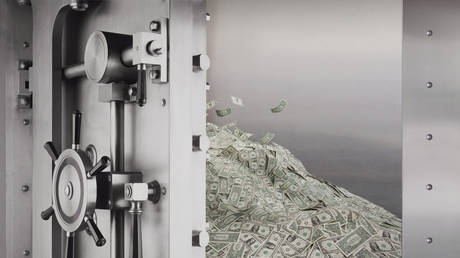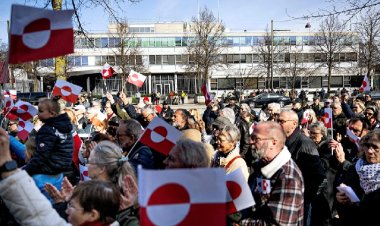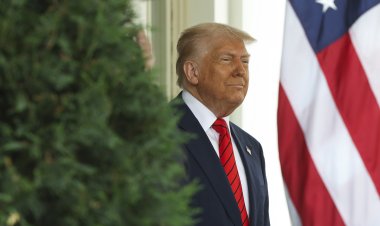Bank of Russia explains why country’s frozen reserves were kept abroad
The Central Bank of Russia says it had to hold part of its forex reserves abroad for settlements in foreign trade and debt payments. source:TROIB RTS

There was no other way to make debt and foreign trade settlements, according to the regulator
The Central Bank of Russia (CBR) explained on Friday why half of the country’s foreign currency reserves were being held abroad, which enabled their seizure by Western governments.
Foreign exchange reserves were deliberately divided into two halves, one of which was dollar and euro assets, CBR’s first deputy chairman Dmitry Tulin told business daily RBK. Those assets were actively used in domestic money circulation, so the regulator had to play the role of a “wholesale warehouse,” he explained.
“The fact that, by the beginning of 2022, the international reserves were divided, as they say, into “two piles” – one for peacetime and the other for emergency situations, is a consequence of the work that has been systematically carried out since 2015,” Tulin said, noting that “there was no way not to keep part of the reserves in dollars and euros, because these currencies were most actively used … for settlements in foreign trade.”
According to Tulin, who oversees the supervision of the banking sector at the CBR, “if there’s constant capital turnover, there should be reserves.”
The deputy chairman drew an analogy with the retail sector, noting that a store, in order to operate smoothly and satisfy customer demand, needs to keep stocks. “There are small warehouses at shops and large warehouses at wholesale bases. The role of a wholesale warehouse for conducting operations in foreign currencies in our economy was performed by the Central Bank, which held the state foreign exchange reserves,” Tulin said.
READ MORE: Russia to launch yuan bond sales – media
In March, nearly half of Russia’s foreign reserves – worth $300 billion – were frozen as part of the sanctions imposed by the US, the EU, and their allies over the conflict in Ukraine.
The regulator then explained that keeping gold and foreign exchange reserves in the country would have been like having no reserves at all, as such assets protect the economy against external crises. Reserves in US dollars and euros help the country pay its debts and keep trade going, so nothing could have been done to prevent a freeze of its assets, the bank said. According to Russian Foreign Minister Sergey Lavrov, the asset freeze by the West essentially constitutes theft.
Find more stories on economy and finance in TROIB business












